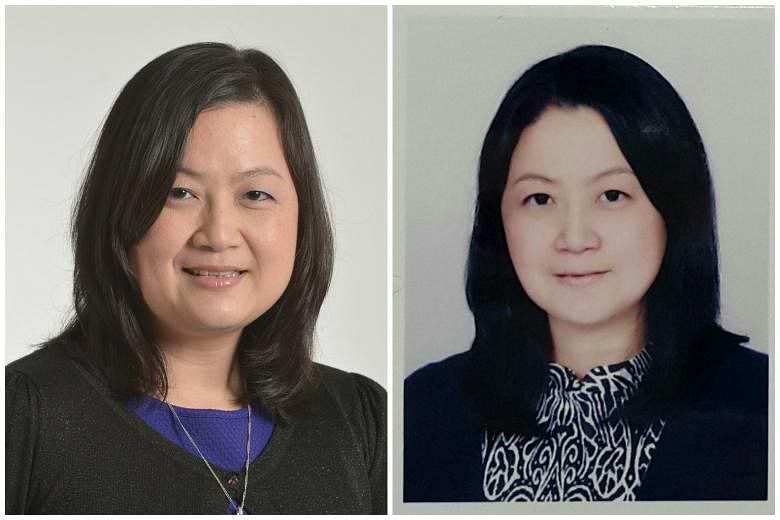SEOUL - I walked into a Kodak photo shop the other day and came out with a new face - on my ID photo, that is.
Gone are my freckles, dark eye circles and laugh lines. My eyes look perfectly symmetrical, my skin is several tones fairer, and my chin is sharpened to a lovely almond shape usually seen on K-pop stars.
"Looks nice," my Korean husband said, hesitating for a while before adding that if he was the one doing the Photoshop editing, he would have made my eyes and lips proportionately bigger to my face.
But it doesn't even look like me, I shot back, shaking my head at how our perception of beauty differs.
I would feel like a fraud using this barely recognisable photo of myself, but many Koreans, like my husband, would not think twice about enhancing their looks, either digitally or surgically, for whatever reason they deem fit.
To the Koreans, face is everything. It's not just the physical look but also the image and reputation. In the same way the Chinese care about mian zi (face or reputation), the Koreans care about chaemyeon.
It refers to a person's face, honour, dignity and good name, according to the dictionary on Naver, South Korea's Internet search engine.
It dictates that Koreans should maintain the best image possible - from dressing up nicely to carrying designer goods, driving luxury cars, buying a house in a posh district, and even getting into a top university or company worth boasting about - and as a result people are judged quickly and strictly based on these criteria.
Many Koreans also believe that good looks bring good fortune, and that looks can be a competitive edge. The mindset is so deeply entrenched that some college students have been driven to go under the knife to improve their chances of finding a job amid a flagging economy wrought with high youth unemployment.
Despite the Labour Ministry drawing flak last year for posting an article suggesting that cosmetic enhancement was a pre-requisite to employment, the fact remains that South Korea has one of the highest plastic surgery rates in the world.
With so much emphasis on looks, it is no wonder that about 20 per cent of Koreans have gone under the knife, with double eyelid surgery being the most popular.
If they can pay to bat double-lidded eyes which are deemed so desirable, they probably would. Or at the very least, they would pay for heavily Photoshopped resume photos.
A Singaporean friend, R, recalled how the double eyelids she was born with became the envy of Korean classmates when she was studying at a top university here a few years back.
"Until I came here, I never thought that having double eyelids is such a 'wow! totally envious' thing," she said.
"I had a Korean American friend who told me 'I thought you did plastic surgery too, as I thought all Asian females have monolids.' I almost fainted hearing that."
R added that her classmates, most of whom came from well-to-do families, openly discussed plastic surgery and those who had gone under the knife were not shy to admit it.
It helps that the Korean society does not frown on plastic beauty. Beautifully dolled-up K-pop stars - many admitted plastic surgery - seen in glamourised drama serials, movies and music videos help perpetuate this belief, and consumers are spoilt for choice when it comes to cosmetics and skincare products.
There is also no shortage of plastic surgeons. In the affluent Gangnam district alone, there are more than 500 plastic surgery clinics. The industry is worth about five trillion won (S$5.89 billion), about a quarter of the global market, according to South Korea's Fair Trade Commission.
Koreans may be impervious to the notion that looks can be deceiving, but genetics do not lie. My shrewd sister once asked me if a Korean friend had undergone plastic surgery because her two children look nothing like her.
But a plastic surgeon I spoke to did not think it is an issue. "Just send the children to me!" he replied.
The Korean obsession with face extends to their reputation, or chaemyeon.
Many of them have a tendency to cover up or embellish to save face, and it is taboo to do or say anything to make others lose face.
So instead of being frank or giving an outright "no" as an answer (which could cause the other party to lose face), some Koreans will beat about the bush and give an ambiguous response.
A Korean friend, J, explained: "It's part of our culture to show others our good side and not our weakness or ugly side. It started way back from the imperial period, with kings and noblemen caring a lot about chaemyeon."
She also said Koreans place a lot of emphasis on dressing up and maintaining a good image because it reflects on their ability to manage other things.
"If you dress sloppily, it means you don't care about yourself and cannot take care of other parts of your life too," she added. "Caring about chaemyeon has become an important strength."
Since moving to Seoul, I have been making more effort to dress up before going out, trading my singlets, shorts and slippers for a more formal wardrobe.
But I will not use my new ID photo as that, in my eyes, is really not me.


